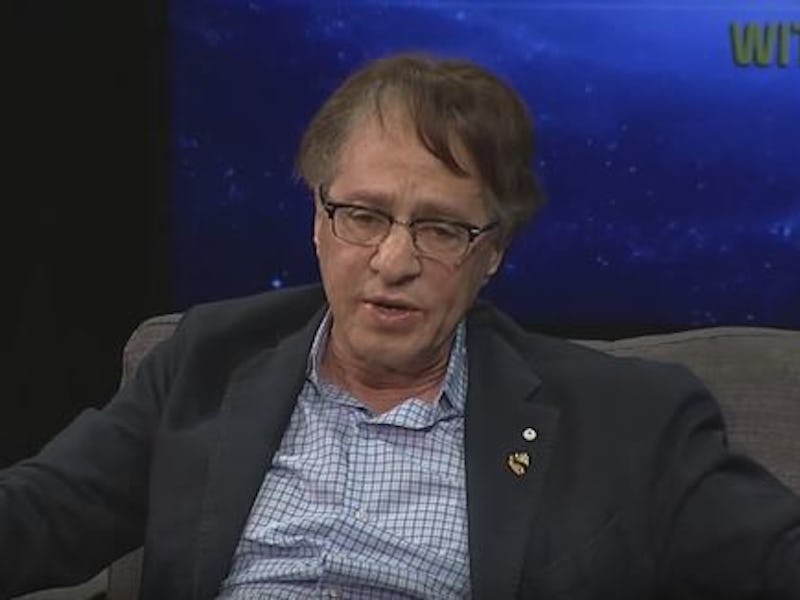Ray Kurzweil to Neil deGrasse Tyson: "Information Technology Is Taking Over"
Pop science communicator, meet pop future prognosticator.

“3D printing is going to take over physical manufacturing very soon,” Ray Kurzweil, the inventor-cum-prediction machine, told celebrity astrophysicist Neil deGrasse Tyson on Monday at the 92nd Street Y. The futurist shared the not-so-secret key to his success of predicting the future — envision exponential, not linear, change.
Kurzweil, if you’re not familiar with his brand of prognostication, bases predictions on Moore’s Law, the theory that information technology improves at an exponential rate. As he explains in the YouTube video below, that exponential foundation has led to some surprisingly accurate conclusions. For example, when the Human Genome Project announced it took seven years to sequence 1 percent of the genome, where others would have assumed it would take 700 years to finish, Kurzweil concluded that 1 percent was more than halfway to the end.
He was right.
Kurzweil spins up controversy when he applies this methodology — which bears out of information technology — to social and non-scientific issues. He’s a champion of the notion of the Singularity, an event when intelligence becomes non-biological and sparks an information revolution that alters the very fabric of the universe. Information technology is bleeding over everywhere, he says, which gives him license to apply Moore’s Law where he sees fit.
Take 3D printing. Though it’s not a new idea, it’s a provocative one nonetheless, given the impact it could have global economies.
He’s undoubtedly brilliant, but sheer intelligence has never been a firewall against criticism. Author Douglas Hofstadter once remarked on Kurzweil’s 2005 book, The Singularity Is Near: “It’s as if you took a lot of very good food and some dog excrement and blended it all up so that you can’t possibly figure out what’s good or bad.”
The Kurzweil-Tyson duo also chatted up the future in a recent episode of Tyson’s StarTalk Radio. In the podcast, New York University psychologist Gary Marcus plays the role of chief hole-poker at Kurzweil’s balloon. It makes for some provoking radio, though it feels as if Marcus spends a fair bit of time on the defensive. Perhaps it’s simply Tyson’s perpetual chumminess, but you get the sense that Tyson is buying what Kurzweil is selling.
“Most people are linear thinkers. That’s the primary difference between myself and my critics,” Kurzweil said at the Y. “We’re looking at the same reality and they apply their linear —”
“Linear brains,” Tyson says.
A pause. “Linear intuition,” Kurzweil finishes.